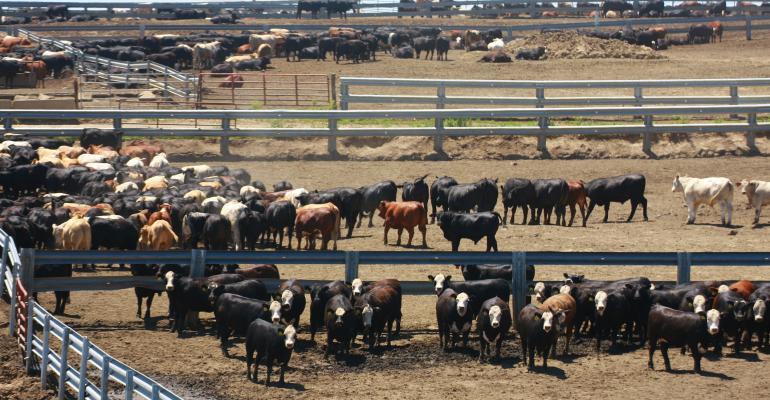Feedstuffs: JBS USA agrees to pay AMS $50k penalty for inaccurate records
by Krissa Welshans | Dec 14, 2018
Company paid $29k back in June for failing to properly maintain carcass monorail scales.
The Agricultural Marketing Service (AMS) announced Dec. 14 that it has reached a consent decision with JBS USA Food Company, also known as Swift Beef Company (JBS Swift), Greeley, Colo., for alleged violations of the Packers and Stockyards (P&S) Act. The consent decision was signed by Acting Chief Administrative Law Judge Channing D. Strother, on November 21, 2018.
AMS conducted an investigation that revealed JBS Swift failed to maintain the identity of beef carcasses purchased on a hot weight basis to ensure accurate payment to livestock sellers at its Grand Island, Neb., facility. During the period of December 14, 2017 through March 31, 2018, JBS Swift failed to record accurately the weights, grades and prices of carcasses on accountings issued to sellers.
JBS Swift was notified of such violations and immediately took corrective action by making adjustments to its carcass tracking procedures and computer software. Under the consent decision, JBS Swift agreed to remit amounts owed to livestock sellers resulting from the inaccurate recording of weights, grades, and prices of carcasses. In addition, the consent decision ordered JBS Swift to pay a $50,000 civil penalty, and to cease and desist from:
- Failing to properly maintain the identity of each seller’s livestock and the carcasses therefrom;
- Failing, after determination of the amount of the purchase price, to transmit or deliver to the seller or his duly authorized agent a true written account of such purchase showing the number, weight and price of the carcasses of each grade (identifying the grade) and of the ungraded carcasses, an explanation of any condemnations and any other information affecting final accounting; and
- Failing to maintain sufficient records to substantiate the settlement of each transaction.
According to the Organization for Competitive Markets (OCM), however, Nebraska cattle producer Steve Krajicek raised concerns last year with AMS over mishandling of his cattle.
“Our yields have been lower than they are at other packing plants,” Krajicek said. “Based on the AMS findings in this case, I wouldn’t even know if JBS was paying me for my own cattle.”
OCM said that too often, smaller producers are required to sell their cattle on carcass weight, forcing them to carry all the risk of shipment including tissue shrinkage and injury to the animal, and then unreasonably having to trust that JBS weighs and grades the animal correctly.
“Larger producers are given the opportunity to sell on live weight at the point of sale, skirting these risks. The result is small producers are abused by the large packer as set out in this case by AMS,” the organization noted.
A similar settlement agreement was reached between AMS and JBS in June for failing to maintain its carcass monorail scales at its Cactus, Texas and Greeley, Colorado facilities resulting in cattle producers being inaccurately paid for their cattle.
In the June 2018 consent decision, JBS paid a $29,000 civil penalty.
“Unfortunately, these civil penalties dim in comparison with the amount of dollars stolen from cattle producers in a pattern of repeated violations of the Packers & Stockyards Act,” OCM said.
Joe Maxwell, executive director of OCM, added, “It is like a thief stealing $5.00 and only being fined $1.00. Where is the incentive to stop stealing?”
